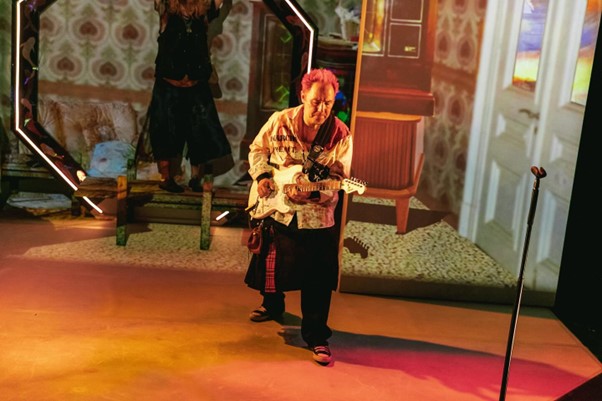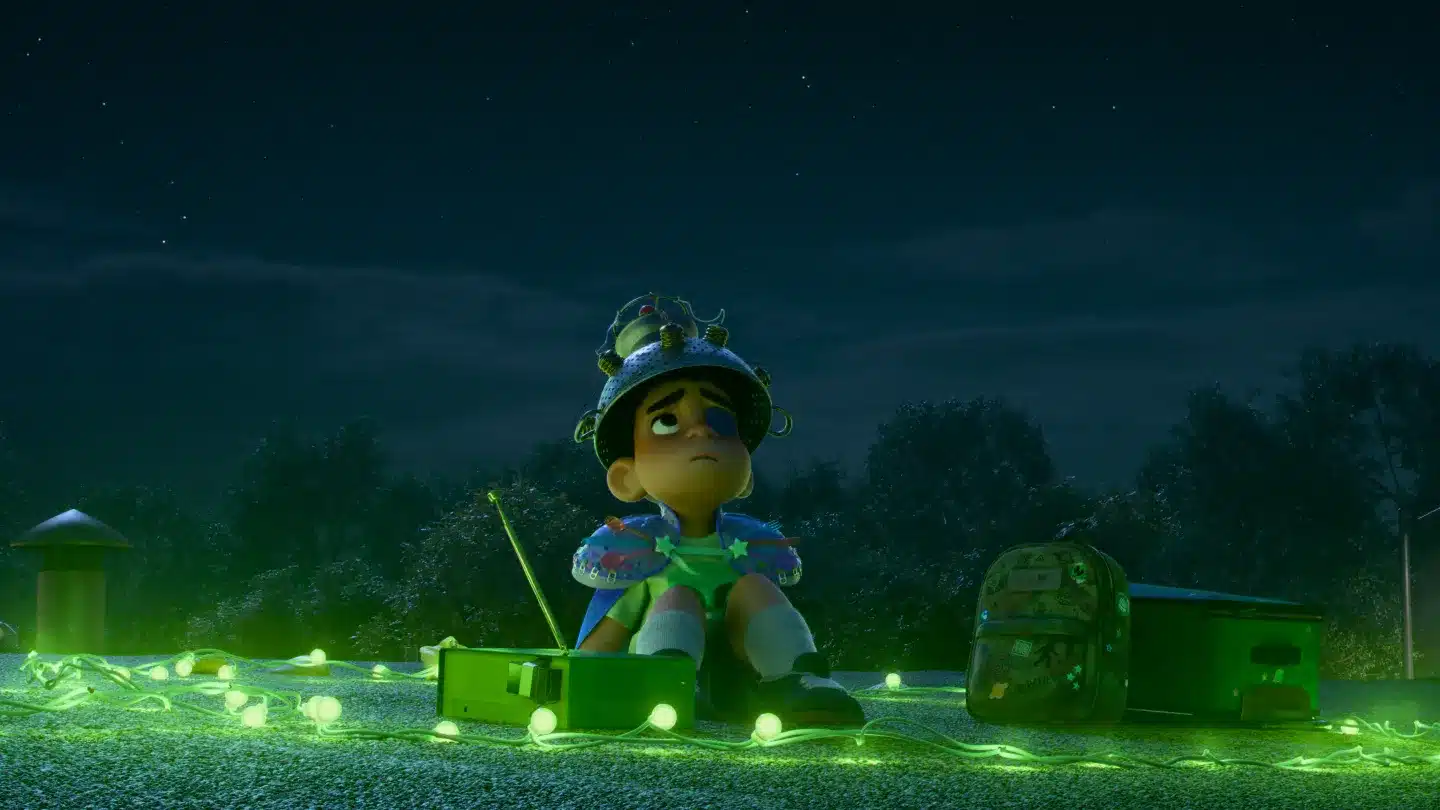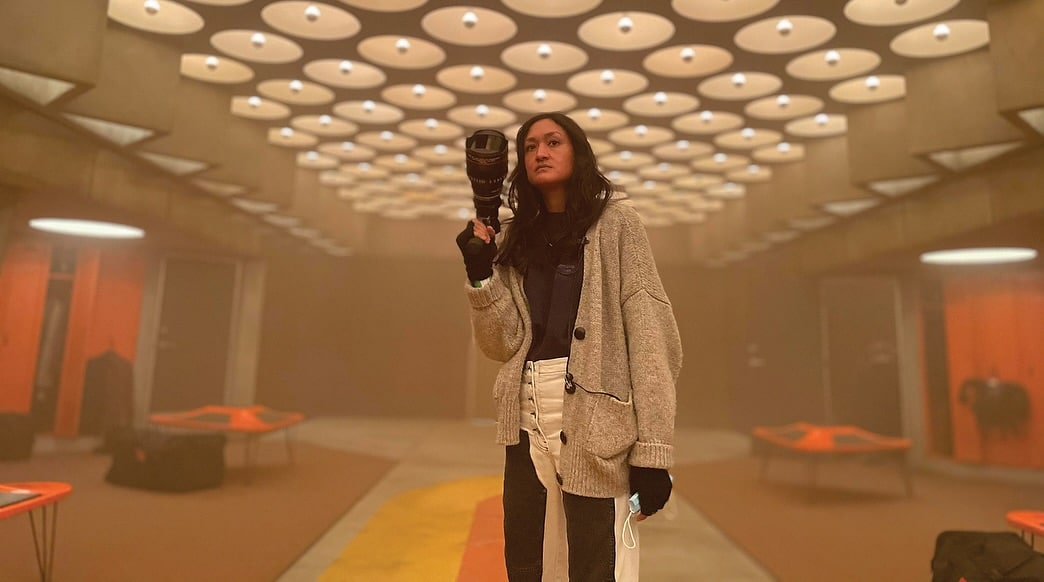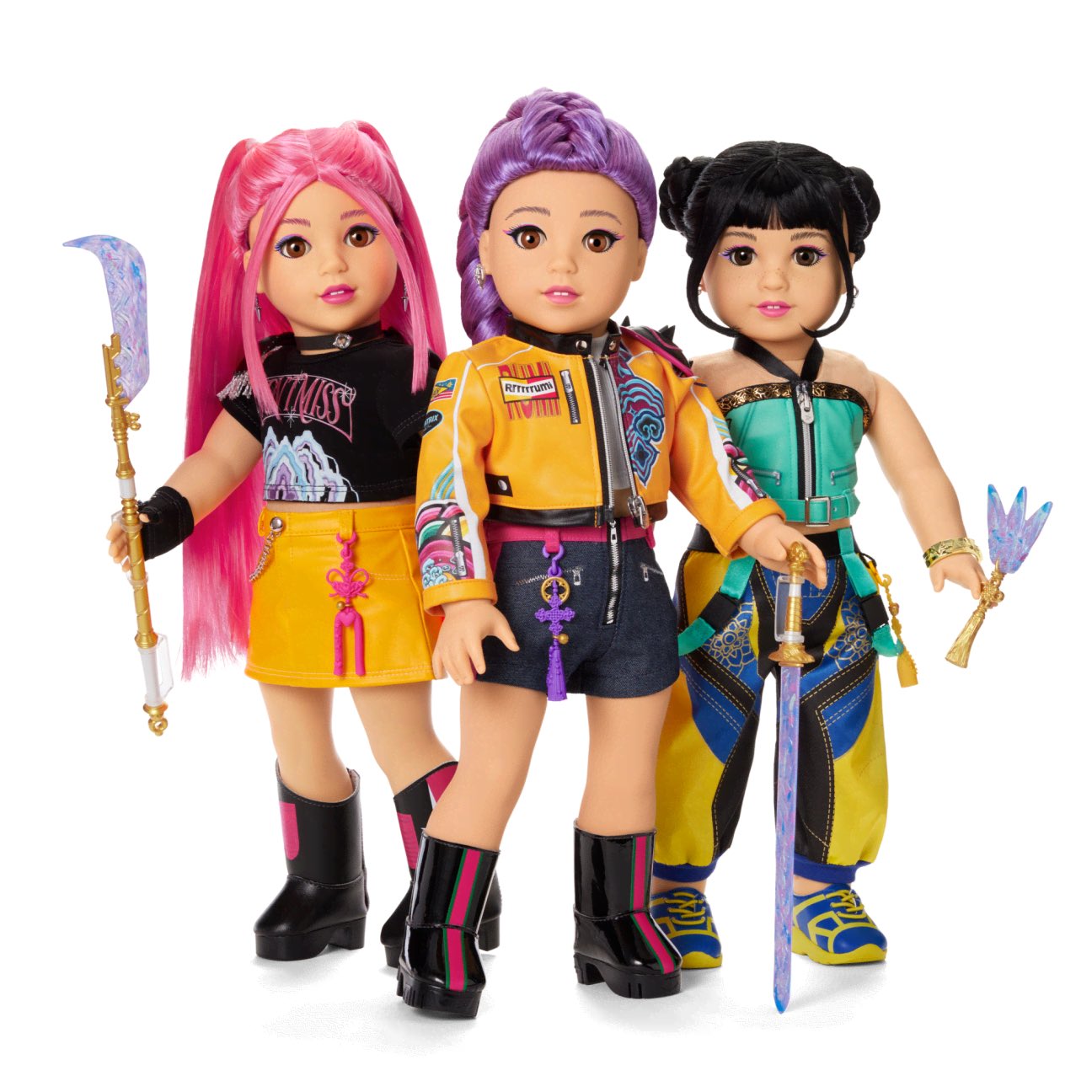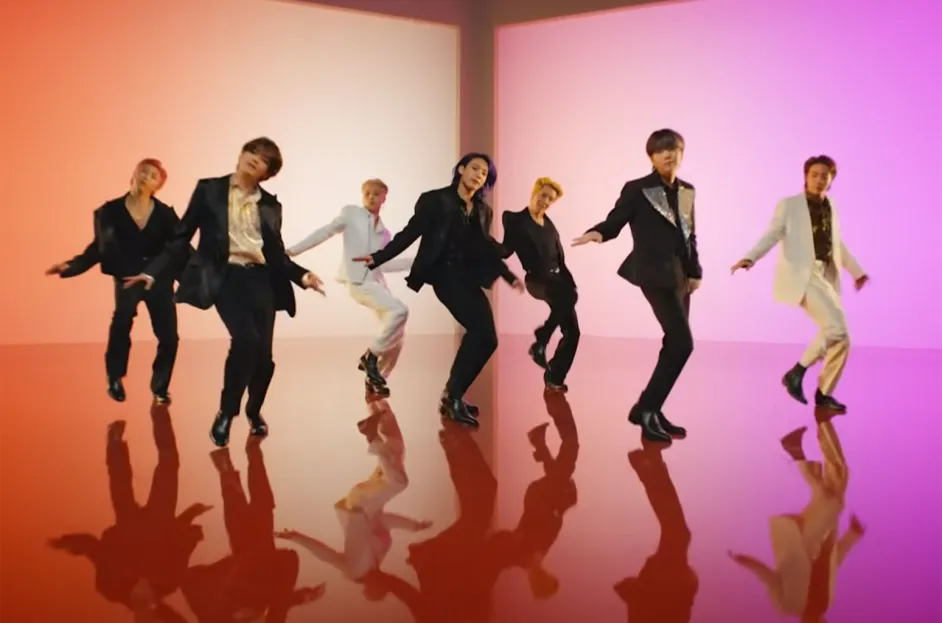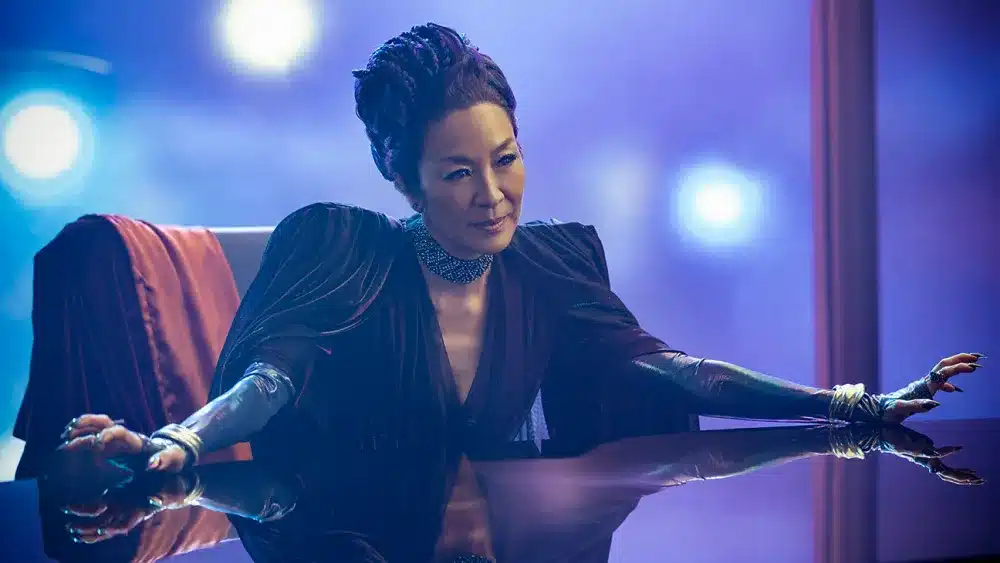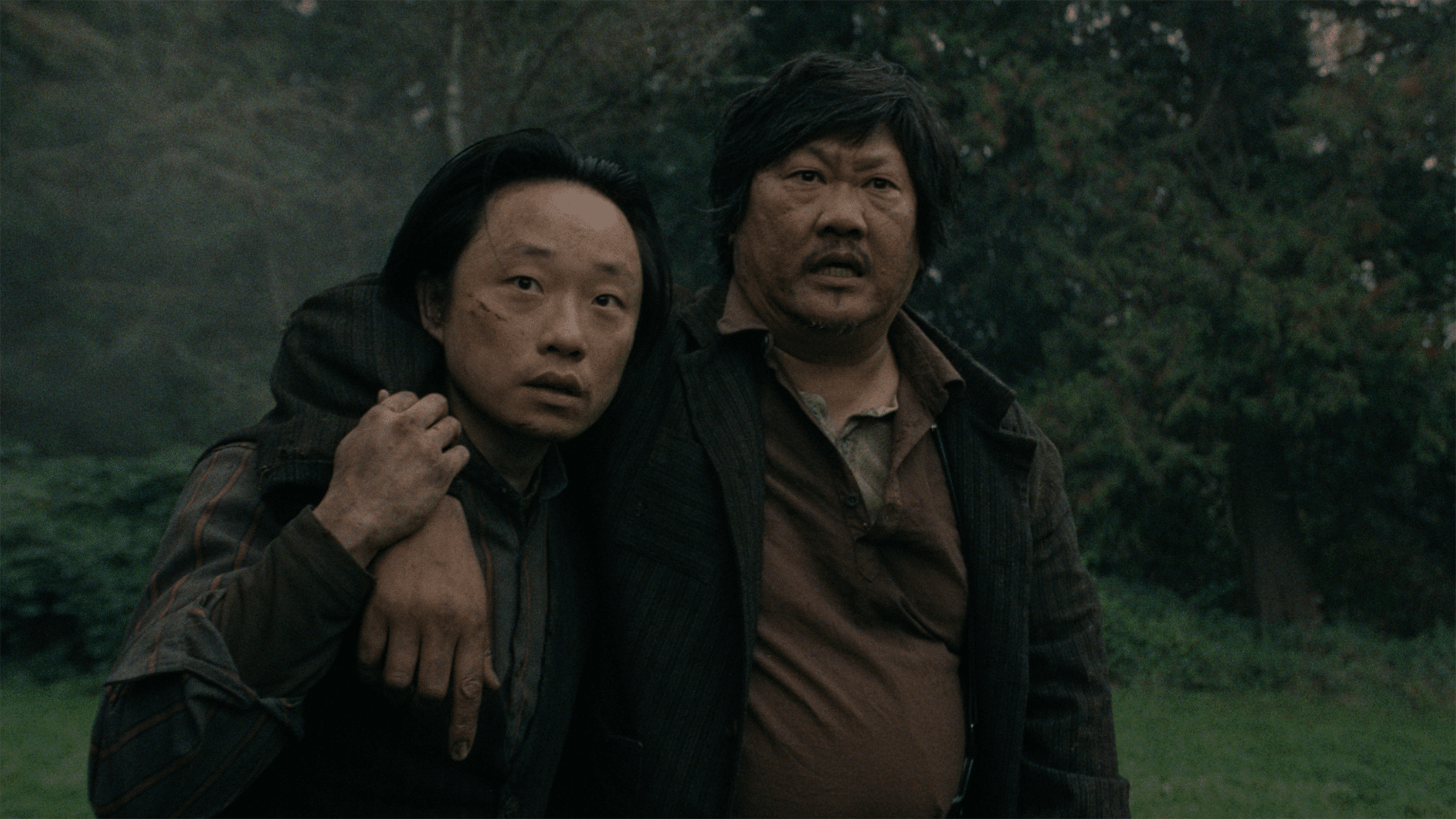Kakilang’s latest production, The Dao of Unrepresentative British Chinese Experience, challenges stereotypes and preconceptions with a semi-autobiographical narrative that delves into the complexities of identity, race, and mental health within the British Chinese community.
Premiering at Soho Theatre, the play intertwines a range of musical genres, multimedia elements, and personal anecdotes to paint a vivid and often humorous portrait of playwright Daniel York Loh’s journey through addiction and recovery.
Loh’s collaboration with musician An-Ting 安婷 brings a unique sonic landscape to the stage, blending punk, psychedelia, and acid rock to amplify the emotional core of the narrative. The Dao of Unrepresentative British Chinese Experience invites audiences to question the “model minority” myth often associated with British Chinese individuals, prompting a broader conversation about the diversity of experiences within marginalized communities.
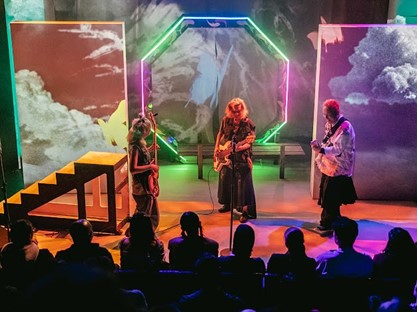
We sat down with Daniel York Loh to delve into the inspiration behind this electrifying show, his collaboration with composer An-Ting 安婷, and the conversations he hopes to spark about identity, culture, and the power of punk rock to challenge the status quo.
The Dao of Unrepresentative British Chinese Experience seems like a very personal and multi-layered story. Can you tell us a bit about the specific events and experiences that inspired you to create this piece?
The story has three basic stages – childhood racial trauma, drug addiction/crime, and recovery/activism – before arriving at a place of… well, hopefully, you can decide for yourselves when you come and see it. All of these stages make up a ‘Dao’ 道 (or ‘road’ or ‘path’ or ‘way’), and I suppose each stage is a smaller ‘Dao’ within the Dao of a life where we’re all faced with multiple choices of which Dao 道 we take, what kind of person we are, and how we participate (or not) in what’s around us.
When I wrote this, I looked back on my life and saw clearly how things could have been very different if I’d chosen alternative paths or ‘Daos’ – it’s sobering that most (if not all) of my alternative choices were often dark and dangerous ones.
In the middle of it all is a quest to write The Definitive British Chinese Story. Of course, this just isn’t possible, and I’m not sure I’ve ever really attempted that. But what that really translates into is a quest for authenticity, for self, for a place to belong. That can bring in all sorts of other factors – wanting acceptance, wanting success, wanting a ‘community’ to celebrate our achievements – which may not be intrinsically wrong but can become corrupting elements.
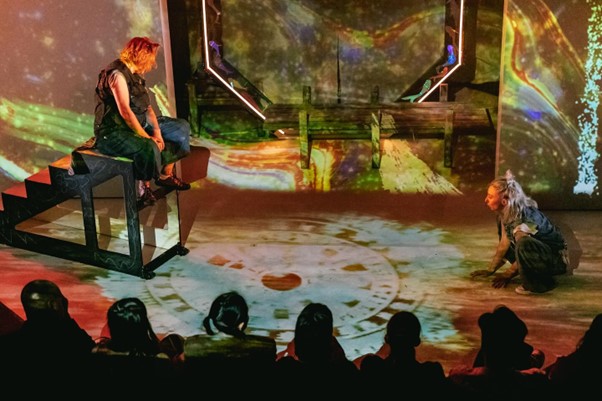
Specific events include what happened to my front tooth when I was five years old, a terrifying drug-fueled car chase, encounters with various authority figures (a Catholic priest, a racist police sergeant), racially abusive kids at school, the one other Chinese kid I met as a child who was gone in a flash, and encounters with what we might call ‘activism’ (I’m a bit shy about that word) and how corrupted that can become by ego and capitalist competitiveness – particularly around 2021 when ‘ESEA activism’ became much more visible but also quickly became a very dark and disturbing place.
But I shouldn’t give the (non-linear) plot away.
The show is described as a “psychedelic punk rock riff.” What role does music play in expressing your story and emotions, and how did you collaborate with An-Ting 安婷 to create the unique soundscape? Can you describe your creative process together and how the music and story evolved in tandem?
The incredible music and sound design is by An-Ting 安婷, who is my favorite composer in the world. We did a show together for Kakilang before: every dollar is a soldier/with money you’re a dragon, a digital experience fusing music, spoken word, dance, and gaming. It did really well and won the Arts Council Digital Culture Award (Storytelling) and is now available as an album to stream.
So we already had a very easy and intuitive working process. We made every dollar in lockdown. I’d converted a tiny store cupboard at home into a makeshift recording studio. I would record all my spoken word/rap text in there, send it over to An-Ting, she’d set it to music, and she’d sometimes message me and say, “Can you do that line slightly slower?” I’d go in the cupboard, re-record it, and send it to her, and it just went like that.
The Dao of Unrepresentative British Chinese Experience was An-Ting’s idea in many ways. I’d told her odd stories about my life, and she suggested I write something based on that. I’d never written anything like this before, so it’s genuinely been a magical mystery tour. I gave An-Ting a bunch of music references – a lot of punk rock, psychedelic 60’s stuff, rap, and pop – and wrote lyrics, and she just came up with the music.
The first one, I think, was the Virtuosity Rap. It tells the story of how I stole a car when I was 17, then got chased in it down narrow provincial streets that really aren’t built for car chases. It comes at a point where we introduce the Daoist concept of De 德, which is sometimes translated as ‘potency’, but the word I like is ‘virtuosity’. It’s ‘spiritual charisma’. So that was our task – to make a grubby story about a stolen car into something that was ‘virtuosic’, and we do that through the words and the music. It’s very exciting.
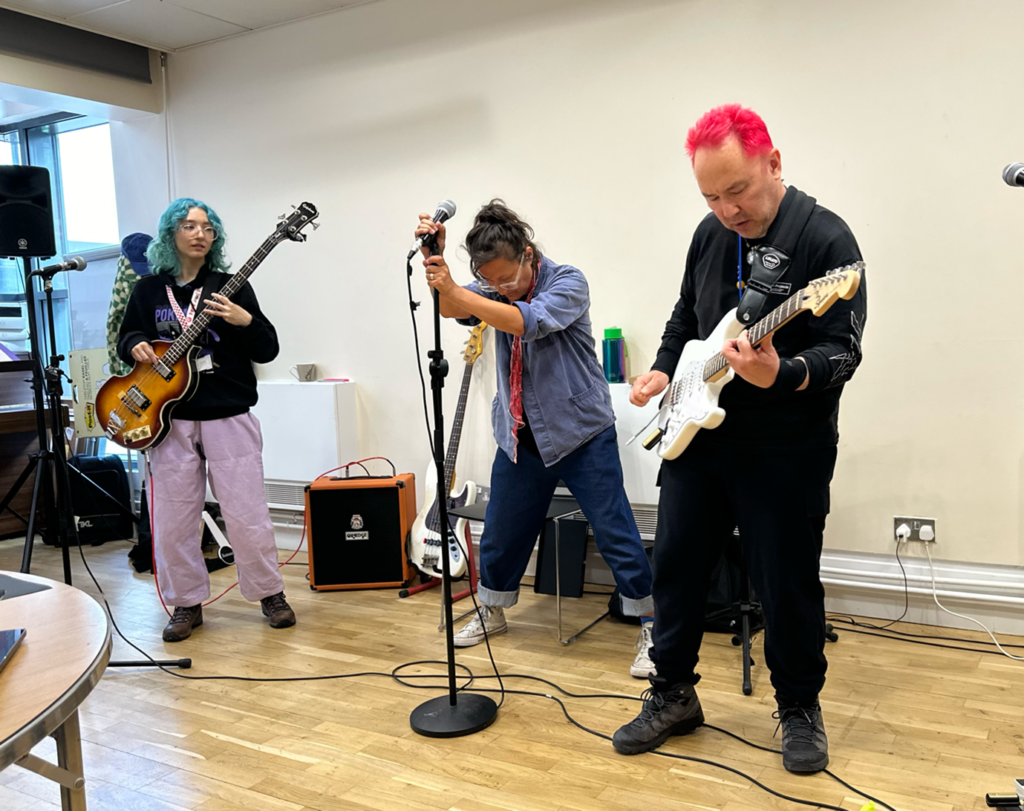
We started doing development workshops with the same three performers as now (Melody Chikakane Brown, Aruhan Galieva, and myself) plus the same director (Alice Kornitzer), playing live musical instruments, so it’s been developed to play live during the show.
You really will be watching a drama and rock concert at the same time. The amazing thing about An-Ting 安婷 is that she’s classically trained and highly accomplished (an acclaimed concert pianist), but she’s no music snob. I would play her some three-chord thrash punk song from my youth, and she’d go, “That’s a great song.” It’s all about melody, lyrics, and passion.
You’ve mentioned challenging the “model minority” stereotype. How does this play explore the complexities of identity for British Chinese individuals, and what do you hope audiences will take away from this?
I wouldn’t say I’m ‘challenging’ the stereotype as such. Of course, there’s an element of that, but it’s actually about just not being able to embody that perception. Not being able to fit in. Not being able to conform.
Many aspects of the play came from when I saw something in the ‘Subtle Asian Traits’ Facebook group. It’s a massive group with a brilliant name. Much of the chat in there is about being a ‘typical’ Asian (I much prefer to think of myself as of ‘Asian heritage’ as opposed to ‘ESEA’, which makes me squirm a bit, to be honest) – what we eat, what boba tea we drink, what movies ‘represent’ us, etc.
One day I looked in there, and there was a questionnaire – How Much Of A Typical Asian Are You? – with a list of boxes to tick: ‘you were always home on time’, ‘you were top of the class’, ‘you never argued with your parents’, and I sat there and realized that none of those things applied to me at all. Food obsession was probably the only one.
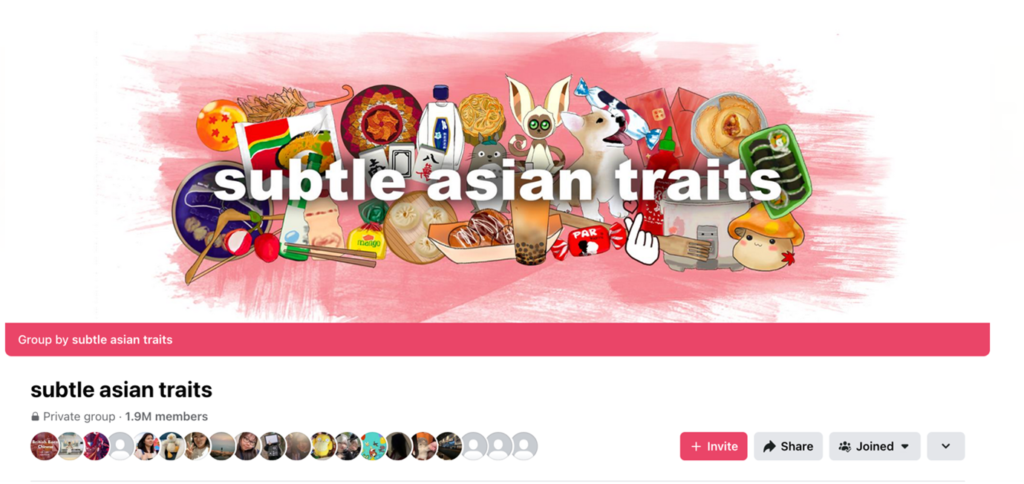
Then I saw an ‘ESEA theatre company’ showing pictures of their ‘professional writers group’ that they were running. Except that particular post wasn’t about the writing but about the food the writers were eating at lunchtime. There were pictures of their food with the tagline ‘you can tell there’s ‘ESEA’s in the building because we have all the best food’. And it made me wonder, what if they had a truly genius writer of ‘ESEA’ heritage who turned around to them and said, ‘I’m having pie and mash for lunch, and I don’t want you photographing it’? Would that writer be regarded as a poor team player? As uncooperative? Worse still, would they then be regarded as somehow ‘not ESEA’?
We tend to think of racism as ‘hatred’, but the great Asian American playwright Frank Chin wrote an essay with Jeffrey Paul Chan on Racist Love, which argued that racial stereotypes are there to enforce white supremacy. So if the stereotyped minority fights back against the stereotype, then anger and hate ensue.
If the stereotyped minority embraces the stereotype, then all is harmony, and ‘racist love’ ensues where the stereotyped minority becomes a kind of ‘trophy pet’. Exotic but inherently inferior. The academic Ming Dong Gu went even further and wrote a book called Sinologism, where he posits that there’s a stage past Orientalism where we ourselves actually present the stereotype to the White supremacist power structure.
I’m not sure a drama about challenging stereotypes on its own is that interesting for me, but the pressure we’re under to conform in order to survive – and sometimes that pressure comes from each other – is inherently compelling for me. And that, to me, is the complexity of Asian heritage in today’s Britain, and there’ll be as many different reactions to that as there will be people watching the show.
The press release notes that the play is “semi-autobiographical.” Can you talk about the challenges or freedoms of working with autobiographical material in this way?
It’s inherently freeing, as it’s my life, and I can effectively tell it the way I want to. I would stress, though, that the emphasis is very much on it being semi-autobiographical. I’ve heavily mythologized it, and most of it is enacted by two female-identifying performers. It’s not ‘realism’, but at the heart of it – as should be at the heart of ALL dramas – is a question that is absolutely real and universal: who am I, and is it even possible for me to ‘belong’?
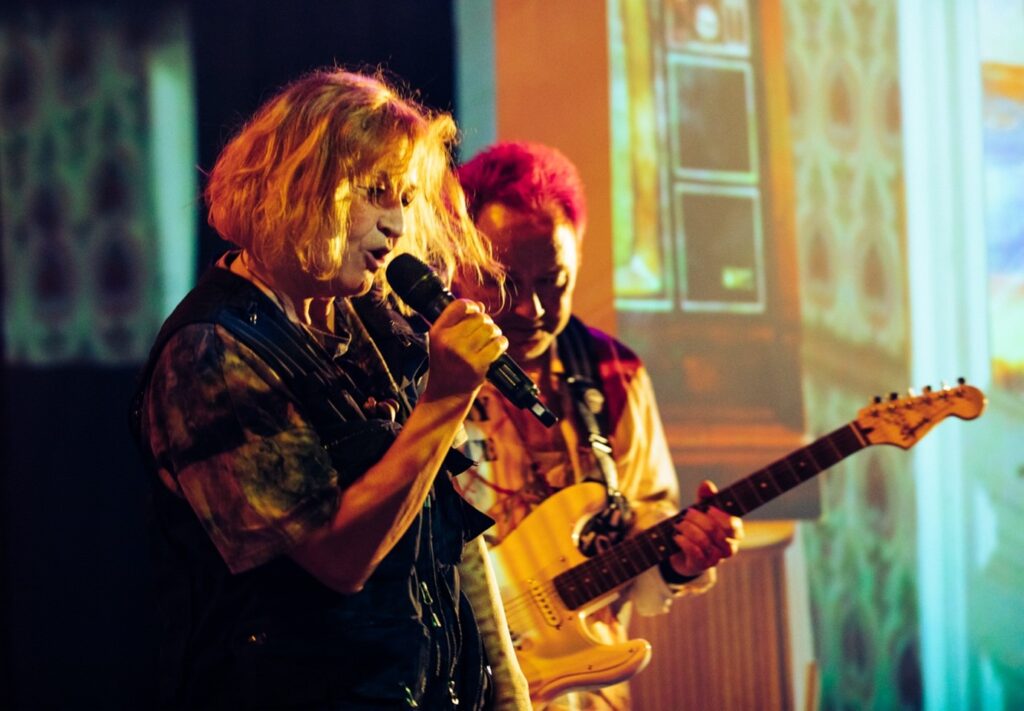
The challenge is probably the same as with any other kind of drama, to be honest: to not be self-indulgent. But we’ve gone about this in such a bold and vibrant way, and I have such an extraordinary team around me: amazing actors and director, incredible music, and lighting design, plus not one but TWO extraordinary designers, QianEr Jin and Erin Guan, who have designed the dreamiest setting which incorporates powerful and beautiful video projection that embraces school playgrounds, family homes, Chinatown streets – and all through the Dao of ancient Chinese cosmology. It’s a wild ride!
Plus, there’s a talking tooth: what more could you want?
What kind of conversations do you hope The Dao of Unrepresentative British Chinese Experience will spark among audiences?
Our amazing director, Alice Kornistzer, often says, “This play is about a love of life.” Yes, there’s pain and heartbreak in there. But there’s a journey (or Dao) as well and something that is ultimately very affirming and, I would hope, uplifting. I don’t like telling an audience how to react or what to think and talk about. There are so many themes and aspects to the show we’ve made. Come along and have all the conversations you want to. Find me in the bar afterward or on social media.
I actually think it’ll be a great date night!
Don’t miss this electrifying and thought-provoking production, playing at Soho Theatre until July 13th. Click here to book your tickets now!

